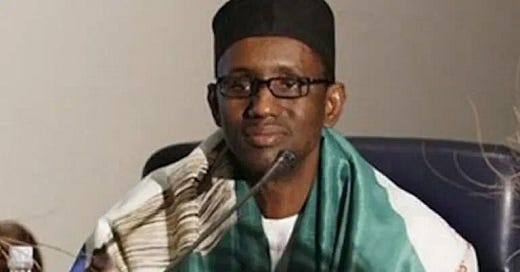Hunger, poverty now national security threats — NSA, CDS, Defence minister raise alarm
Mallam Nuhu Ribadu
By Kingsley Omonobi
Top security and defence officials have warned that hunger and poverty have become critical drivers of insecurity in Nigeria, escalating violence, social disintegration, and undermining national cohesion.
The alarm was raised at the 14th National Security Seminar in Abuja, themed “Combating Hunger and Poverty for Sustainable Peace and Development in Nigeria.”
National Security Adviser (NSA), Mallam Nuhu Ribadu, in a message delivered by Maj. Gen. P.P. Mala, Director of Defence Affairs, stated that the administration of President Bola Ahmed Tinubu is aggressively addressing the crisis through agricultural reforms, social investment programs, and strategic security interventions.
“Hunger and poverty are not merely social concerns; they are catalysts for insecurity, crime, and social disintegration. They form a vicious cycle—poverty leads to insecurity, and insecurity deepens poverty,” Ribadu noted.
He emphasized that the Tinubu-led government is prioritizing initiatives to support food security, law enforcement capacity, and rural development. The Office of the National Security Adviser (ONSA), he said, continues to coordinate both kinetic and non-kinetic efforts involving the Armed Forces, intelligence services, and civil stakeholders.
Despite ongoing interventions, Ribadu acknowledged that issues such as unemployment, disenfranchisement, and food insecurity remain persistent. He urged for innovative, inclusive, and long-term strategies to combat them.
‘Lasting Peace Demands Human-Centred Security’ — Defence Minister
Defence Minister, Alhaji Mohammad Badaru Abubakar, echoed the NSA’s concerns, stating that sustainable peace is unattainable without addressing the socio-economic vulnerabilities fueling unrest and radicalization.
“This administration’s strategic focus on agriculture, vocational training, and social services is already transforming lives. But military solutions alone are insufficient—we must tackle unemployment, hunger, and exclusion through coordinated, long-term development,” he said.
Badaru urged the adoption of a human-centred approach to national security, calling for a “whole-of-society” effort to tackle the root causes of violence.
Chief of Defence Staff (CDS), Gen. Christopher Musa, represented by Rear Admiral Ibrahim Shetimma, warned that hunger and poverty have transcended social issues and are now full-blown national security threats.
“Insecurity today is no longer defined only by arms and conflict but by economic deprivation, displacement, and hunger,” Musa said, citing Benue State—once Nigeria’s food basket—as an example of how violence and displacement have devastated food production.
He called for urgent grassroots agricultural investment, improved access to credit, and rebranding of farming as a dignified and strategic profession. He also praised Tinubu’s Renewed Hope Agenda, especially its push for local government autonomy to drive community-based development.
Air Commodore Darlington Abdullahi (Rtd), President of the Alumni Association of the National Defence College (AANDEC), emphasized that social investment—especially in education, skills training, and economic empowerment—is vital to peace and security.
“Hunger and poverty are not just humanitarian crises; they are strategic threats. A nation that ignores the welfare of its citizens invites instability,” he said, quoting the adage, “The children of the poor you fail to train will never let your children have peace.”
He advocated for the establishment of vocational and leadership centres for widows and children of fallen heroes as a step toward healing and empowerment.
The seminar was jointly organized by AANDEC, the Office of the National Security Adviser (ONSA), and the National Defence College (NDC), drawing top military, intelligence, and policy stakeholders to deliberate on sustainable responses to Nigeria’s deepening socio-economic crisis.
Vanguard Media Limited



